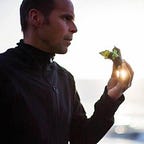What is self-actualisation about?
Finding your own Path.
Self-Actualisation?
Self-actualisation is a term used by Abraham Maslow in “A Theory of Human Motivation” and the ultimate stage of his hierarchy. Maslow’s hierarchy of needs is often represented as a pyramid, with the basic needs at the bottom and moving up to motivations: physiological (food, water, shelter, rest…), safety (security, safety…), love and belonging (intimate relationship and friends), esteem (confidence, respect…), self-actualisation (unlock your potentials).
What is self-actualisation about? Finding your Path.
Part of elegance of the idea of Maslow comes from its simplicity. If his idea is easy to understand, the practice can reveal to be more challenging. Let’s illustrate how you can find your own and unique path in three steps: Feel Alive (here & now), Find your Purpose (meaning) and Unlock your Potentials (sense of progression).
Step 1: Feel Alive
- Live Creatively: Enjoy the moment. Adopt a playful way of live. Be ok with the “exotic you”. Don’t try to conform to external norms. Follow your curiosity. Care about what you do. Don’t take yourself too seriously.
- Venture just outside of your comfort zone: Learning and evolving happen outside of your comfort zone. You need a touch of acute stress to signal to your brain that your will need to recover, learn and adapt. Engage in deliberate practice to experience a “safe” challenge by doing something that’s at the edge of your abilities.
- Keep exploring: each time you feel kind of lost, you observe more, listen more and remember more. You don’t need to travel to a remote location but simply engage in activities that are new to you, where you feel kind of lost and which requires your full attention.
Step 2: Find Your Purpose
- Feel Useful: define simply how you do something that is useful for others. The formulation looks like — I do “this thing” for “my audience” so that “they experience this impact”. An Example: I help Everyday Heroes to Make Plans and Change their Game.
- Try Stuff: we figure out what we like in practice not in theory. It’s not an issue if you don’t know yet what you like, just follow your curiosity and experiment with new things until you have a “Waah” moment and focus your attention into one specific thing.
- Do Good to Feel Good: Emotions comes from Motion. Action before Feelings. Don’t wait to feel good to start doing something. Start by doing and then you will feel better.
Step 3: Unlock your Potentials
- Set your Own Score Board: don’t compare yourself to others. Define your own metrics to have a sense of your own progression based on your very own abilities and limitations. Look to give your personal best with consistency. Essential things in life are internal.
- Visualise your Progression: start with a simple habit tracker and coming for consistency not for performance. Celebrate your streaks. With time, look at your progression using your own score board.
- Share to consolidate what your are learning: share your learning journey in an authentic way in the format that fits you best (writing, drawing, audio, video…). In order to document, explain, teach you have to connect dots, make sense and structure your thinking which in exchange consolidate your takeaways. We learn by teaching, coaching or sharing.
What defines a self-actualiser?
Maslow provides some insights on common personality traits of self-actualiser. Being a self-actualiser starts by having the courage to engage in the true adventure of living at the fullest of your potentials. Which, by the way , doesn’t mean that your life will become easier. It simply means that you will approach the reality differently. A self-actualiser:
- is living creatively fully using his potentials
- is operating autonomously of external expectations
- tends to be self-aware and to know his purpose
- has an efficient perception of reality
- develops an acceptance of self, others and the human nature
- is autonomous and decides based on his own experiences and judgment
- is living in an authentic and spontaneous way
- acts like a curious learner
- finds comfort in solitude and has few real friends
You may identify or not to some of these personality traits. They are commonalities identified by Maslow in characterising self-actualisers.
Further read:
Self-Actualisation is closely related to Lifestyle Design. You can read the following article on How-to design your Lifestyle in 3 Steps? Find your own Path. Explore, try stuff and have fun. Live the way you want.
In order to find your path and then align action and values, you may find useful to draft your personal manifesto.
